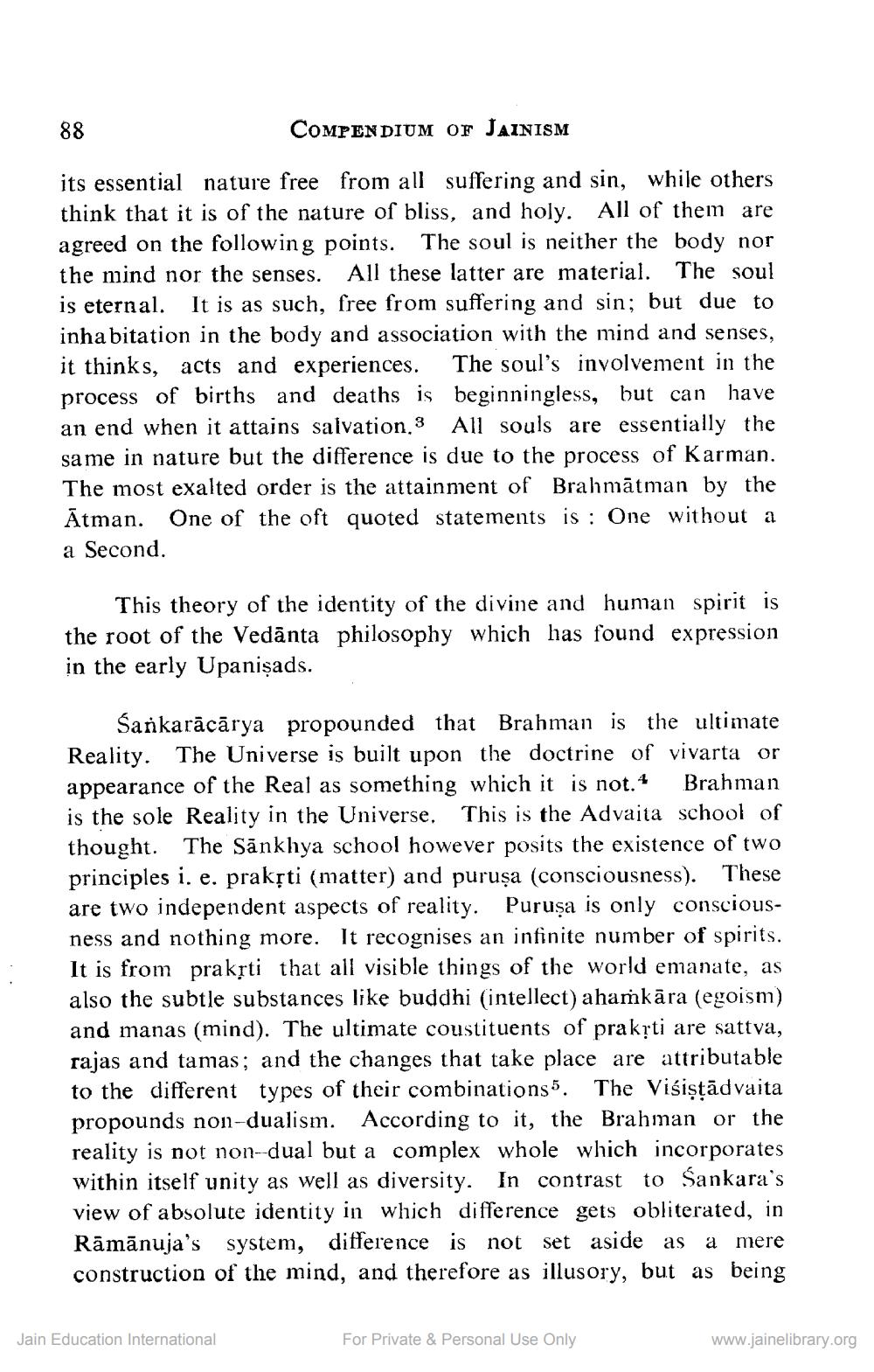________________
88
COMPENDIUM OF JAINISM
its essential nature free from all suffering and sin, while others think that it is of the nature of bliss, and holy. All of them are agreed on the following points. The soul is neither the body nor the mind nor the senses. All these latter are material. The soul is eternal. It is as such, free from suffering and sin; but due to inhabitation in the body and association with the mind and senses, it thinks, acts and experiences. The soul's involvement in the process of births and deaths is beginningless, but can have an end when it attains salvation.3 All souls are essentially the same in nature but the difference is due to the process of Karman. The most exalted order is the attainment of Brahmātman by the Ātman. One of the oft quoted statements is : One without a a Second.
This theory of the identity of the divine and human spirit is the root of the Vedānta philosophy which has found expression in the early Upanişads.
Sarkarācārya propounded that Brahman is the ultimate Reality. The Universe is built upon the doctrine of vivarta or appearance of the Real as something which it is not. Brahman is the sole Reality in the Universe. This is the Advaita school of thought. The Sānkhya school however posits the existence of two principles i. e. praksti (matter) and puruşa (consciousness). These are two independent aspects of reality. Puruşa is only consciousness and nothing more. It recognises an infinite number of spirits. It is from prakrti that all visible things of the world emanate, as also the subtle substances like buddhi (intellect) ahamkāra (egoism) and manas (mind). The ultimate coustituents of praksti are sattya, rajas and tamas; and the changes that take place are attributable to the different types of their combinations. The Višiştādvaita propounds non-dualism. According to it, the Brahman or the reality is not non-dual but a complex whole which incorporates within itself unity as well as diversity. In contrast to Sankara's view of absolute identity in which difference gets obliterated, in Rāmānuja's system, difference is not set aside as a mere construction of the mind, and therefore as illusory, but as being
Jain Education International
For Private & Personal Use Only
www.jainelibrary.org




